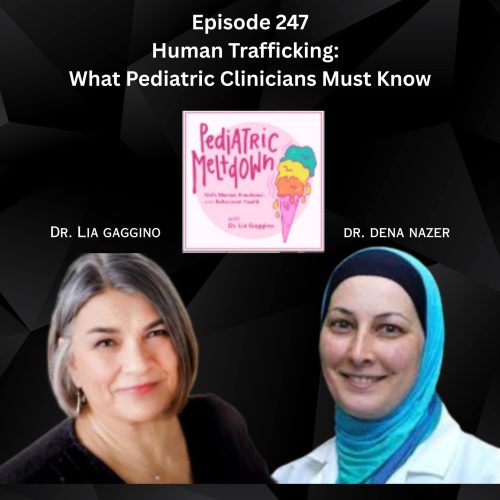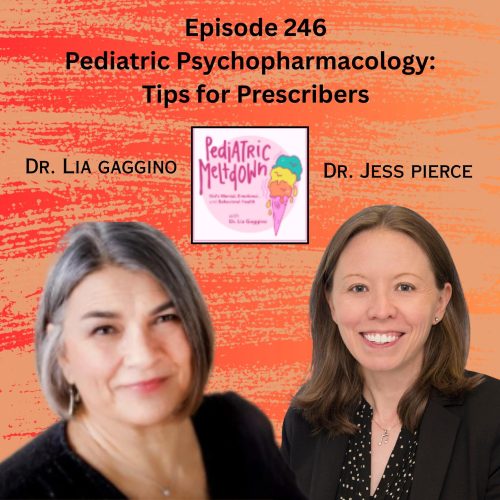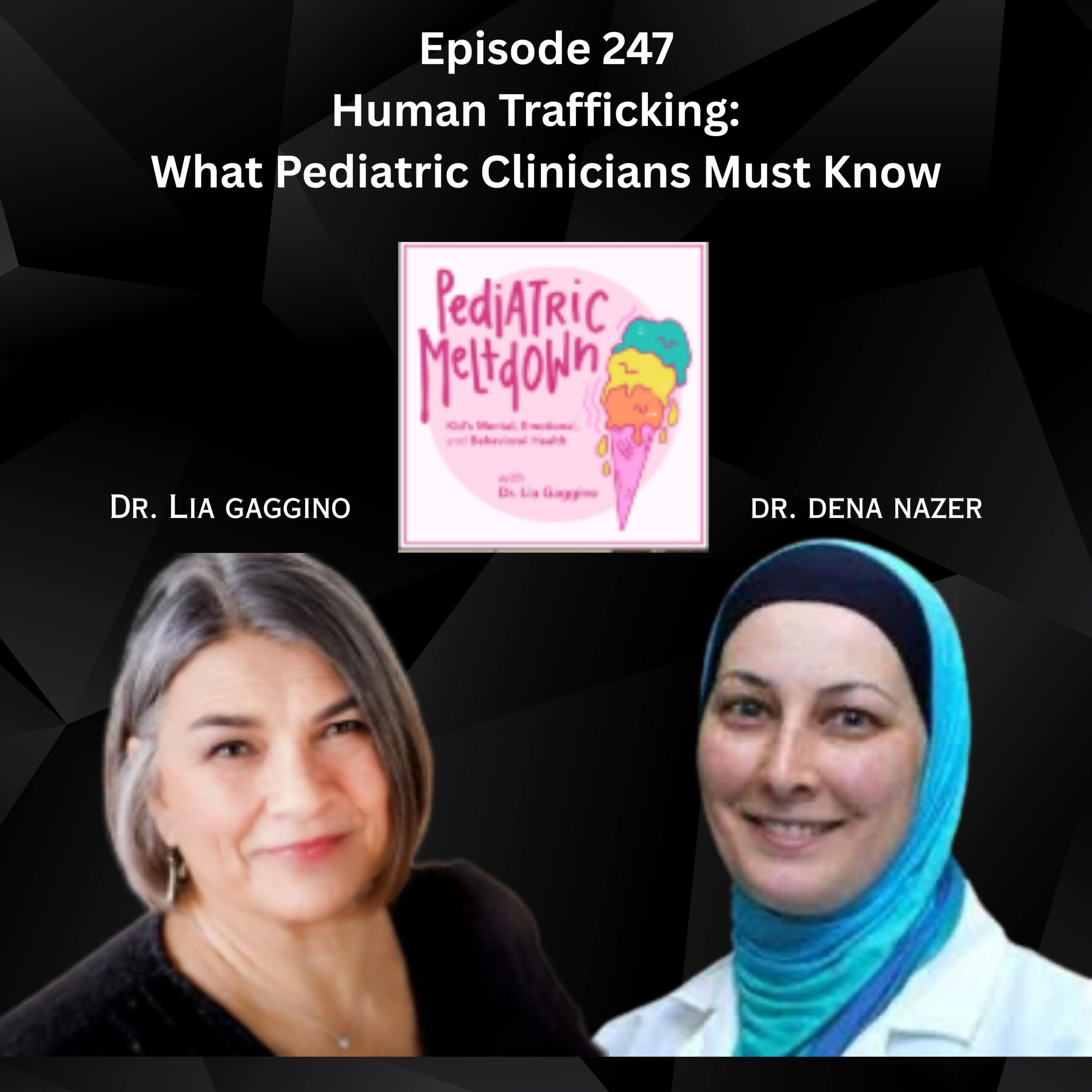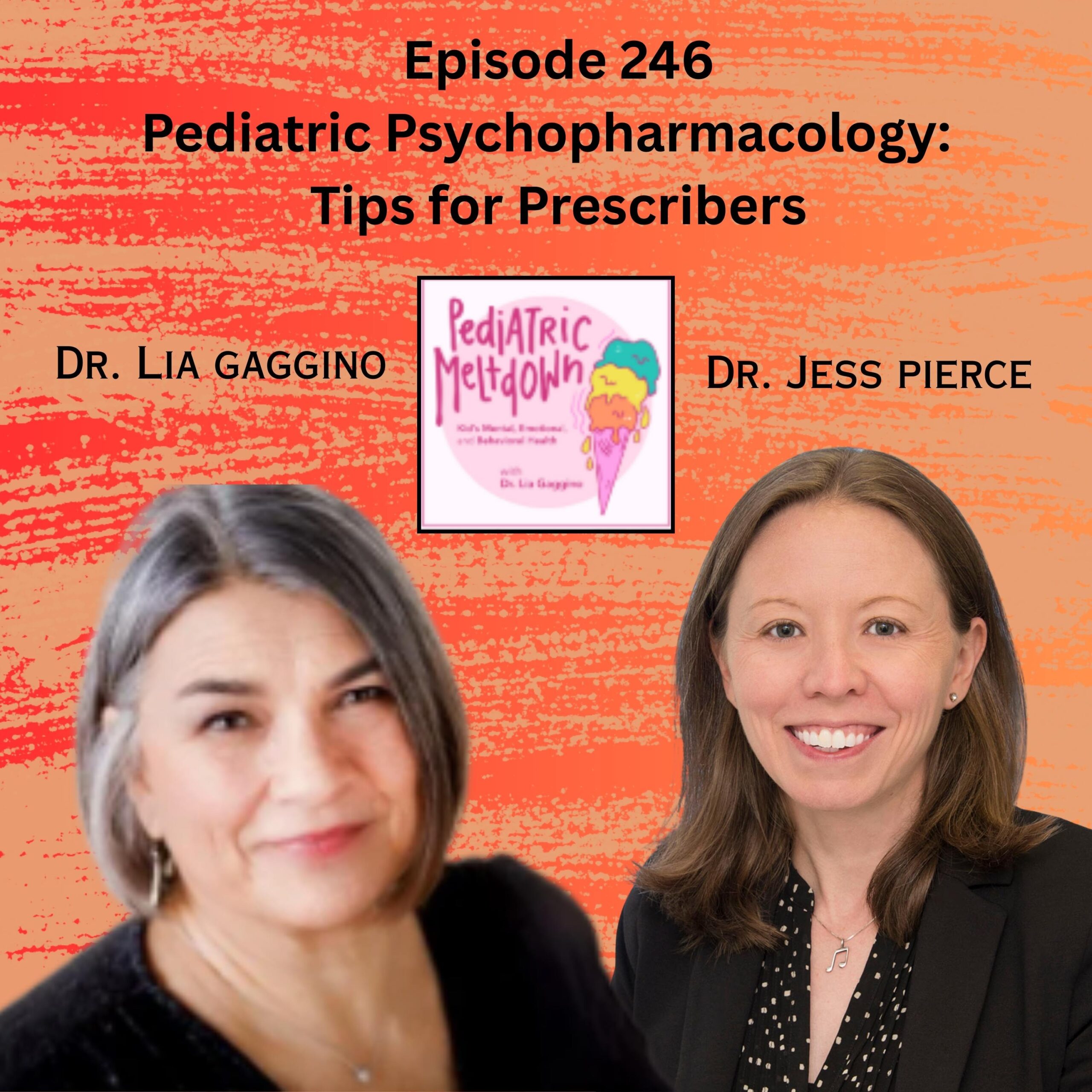Even though the situation that we are facing with the youth mental health crisis right now is daunting, there is such an opportunity for creativity and innovation and with the kind of clinicians that we interview today, there is such an opportunity to really write a new plan. Dr. Lois Lee and Dr. Ben Biermann discuss how primary care settings are seeing an increase in children coming in with suicidal thoughts or attempts. They emphasize the importance of partnerships between providers and discuss ways to advocate for funding for expanded mental health care. They also talk about early intervention services, community-based mental health programs, and school-based mental health services.
Dr. Lois Lee’s work focuses on pediatric emergency medicine, health disparities, injuries, and health policy. This is grounded in her clinical work as a pediatric emergency medicine physician at Boston Children’s Hospital and Associate Professor of Pediatrics and Emergency Medicine at Harvard Medical School. At Boston Children’s Hospital, she is the Associate Program Director for Public Policy at the new Sandra L. Fenwick Institute for Pediatric Health Equity and Inclusion.
Dr. Biermann is a child and adolescent psychiatrist on faculty at the University of Michigan Medical School. His clinical work focuses mainly on hospital-based care: psychiatric emergency services, psychiatric inpatient, consultation/liaison, and ECT treatments. Dr. Biermann’s clinical and scholarly focus has been on adolescents with mood disorders and disruptive behaviors, treatment-resistant depression, and youth in crisis. He also has an interest in substance use disorders and dual diagnosis.
Key Highlights:
[00:01 – 08:41] Open Segment
Dr. Lois and Dr. Ben share their background and work
The increase in the boarding of mental health patients
Mental health crises are not a COVID induced problem
[08:41 – 18:22] Risk Assessments And Safety Planning With The Child First
Pediatrician’s perspective on the current state of emergency rooms and children who are seeking care
How child psychiatry can be helpful to know if a child should be admitted or not to the hospital
Social work helps to ensure that mental health is a part of the patient’s care
[18:23 – 28:24] How We Can Better Serve Our Kids
Why emergency room doctors should assess a child’s risk for suicide
Doctors should consider if kids need to be medically cleared before admitting them
How to provide more equitable care for all children
[28:25 – 38:02] Ensure Patients Receive The Best Possible Care
The potential of telehealth in psychiatry
The importance of investing in psychiatry workforce development
There is a need for more mental health professionals due to the increasing population
Engaging patients in a standardized way can help connect them to treatment
[38:03 – 51:50] Mental Health Is A National Crisis
Why the integrated behavioral health care can be helpful
More collaboration and coordination are needed to address the youth mental health crisis
What can help improve access to care and funding for mental health initiatives
[51:51 – 1:00:24] Final Takeaways
- Our kids are not doing well emotionally
- Access to mental health care is in short supply
- Suicide remains the second leading cause of death in youth
- The emergency rooms are overrun with kids waiting, boarding for help
- The pandemic magnified the mental health crisis
- For underserved minoritized and poor youth, the access to services is even more challenging
- When a kid hits the emergency department with mental health concerns, what happens next depends on where the ED is located
- If they are medically cleared, an assessment of risk, and intent access to mean follow if there’s been suicidal ideation
- When psychiatry support is available, ED intervention is more likely to happen
- Ultimately, the question is a disposition
- Empower and educate primary care, pediatricians and clinicians on the front end of prevention
- Let’s think outside the box for the acute needs of kids in crisis
- A barrier to change might be the workforce
- Let’s go upstream and think about prevention
- It is inhumane to deny care
- Advocate for funding, for expanded mental health, early relational health
- The incredible power of partnerships
Resources Mentioned:
- Biermann B and Votta J: The Psychiatric Emergency Assessment of Children and Adolescents. Emergency Psychiatry: Principles and Practice, Glick R, Berlin J, Fishkind, R, and Zeller S. Wolters Kluwer, 2021. 2
- NYT: Hundreds of Suicidal Teens Sleep In Emergency Rooms. Every Night May 8, 2022
- 60 Minutes: Sunday May 8, 2022
- AAP/AACAP Declaration Mental Health Emergency
- US Surgeon General Advisory on Youth Mental Health Crisis
Connect with Lois Lee through Twitter and with Ben Diermann through LinkedIn.
Key quotes:
“I really think we need to be collaborative and cooperative and, and work together to address the youth mental health crisis.”- Ben Biermann
“It is actually inhumane to deny a child or an adult.” – Lois Lee
THANK YOU FOR YOUR SUPPORT!
Pediatric Meltdown was listed as a Top 20 Pediatric Podcast on FeedSpot.
If you’d like to connect with me, you can find me on LinkedIn, Facebook, Instagram, and Twitter, or email me at gagginol@medicalbhs.com or gagginol@yahoo.com. To learn more about me visit https://www.medicalbhs.com/
LOVE WHAT YOU HEARD? Leave us a 5-star review so we can continue to provide you with great content. Share this episode and help people know more about children’s health and well-being.








